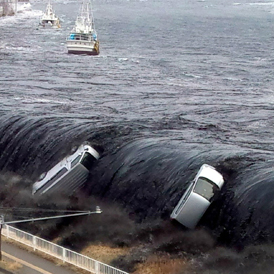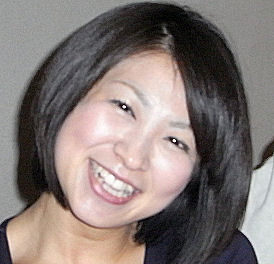Dealing with demands in Japan – meet the fixer
 Alex Thomson
Chief Correspondent
Alex Thomson
Chief Correspondent
Language and logistics are just two hurdles the Channel 4 News team has to overcome in Japan. Chief Correspondent Alex Thomson introduces you to the “fixer” who makes things happen.

One of those repeated questions that reverberates from viewers is along the following lines: “How do you just fly somewhere and manage with logistics and language and all the rest of it in these places you go to?”
The answer’s there in the question of course. You have so many needs: translation, local know-how, cultural awareness, logistics and all of it summed up in that wonderful sort-it-all job title: Fixer.
At its best your fixer will deliver and exceed the often unreasonable, sometimes preposterous requests correspondents and newsdesks routinely make on the road.
So when I suddenly demand, ludicrously, minutes after arriving in some war-torn country, that our new-found fixer gets us an English-speaking cabinet minister from the 24 hour-old Emergency Revolutionary Council for a live guest in the next hour – you want that rare breed of fixer who’ll call back in eleven minutes:
“Hi Alex. I’ve lined up three guests – all fluent English speakers – do you want the prime minister, provisional president or the commander-in-chief of the army?”
Well you get the drift.
Fixing’s all about all that and much, much more.
Read more: The devastation of Japan and the strength of its people

The “fixer”
As usual we met Hiroko Nakamura in the dead of night, in Tokyo. Us, drained by the overnight flight from London to Shanghai then Osaka then the shinkansen bullet-train to Tokyo.
Hiro, exhausted by the terror of a major earthquake in her own city then the emotional strain of seeing the tsunami unfold.
For all of us, no sleep the previous night, nor that night as we headed north. We’d all be up at least 70 hours or so before we’d see a bed.
So time to get to know each other. And Hiro is certainly dynamic, crouched in the back seat of our van over hundreds – thousands – of miles, poring over her laptop and phones, throwing out ideas, suggestions, news-snippets every few minutes as we headed into the tsunami zone in March.
All of this punctuated by her iPhone, programmed to bleep an alarm every time a new earth-tremor warning was put out.
Her fluent English comes in an American drawl, picked up in part by her post-grad studies in Arkansas. She’d studied earlier at university in Fukuoka, Japan for a year before transferring to Ouachita Baptist University in Arkansas where she studied Christian Counselling.
Photo gallery - Channel 4 News team in Japan in March 2011

This is not easy. I am a visiting foreigner – here today, gone tomorrow. What we saw and filmed was upsetting and profoundly moving for us – but far more so for Hiro. These are her people, her country, her culture – violently torn apart.
There were tears in March, of course, and real exhaustion, but incredible energy from her too and determination to get the story out, deal with any and every situation and all of it in a foreign language with a bunch of weird strangers who did not seem to understand words like “no”, “that’s illegal” or “that’s not possible”.
Small wonder that Hiro tells me: “My motto as a journalist is to be a loud speaker for small voices that are vanished in vested-interest structure. I don’t go after scoop, but try to stay true to my original motivation as a journalist.”
Alarmingly, for a young woman forcibly cooped up with me and living largely off motorway vending machines in the quake zone, Hiro loves cooking when not working and in particular being creative with Japanese cuisine away from conventional recipes.
I sincerely hope for her palate and sanity, that we will have more access to Japan’s famous food this time around, now the crisis time has, to some extent, passed us all.
Hiro's tsunami zone kit:
Rain boots - especially when it rains, as the ground level has dropped by 50cm or more after 3/11.
Mask – it's very dusty on sunny days, and some places still have radiation concerns.
Hand wipes - whatever we touch in the disaster areas could contain bacteria - I've gotten high fever from neglecting this.
Business cards - in Japan it is very important to give your business card when meeting new people.
And of course other things such as towels or extra batteries etc.
